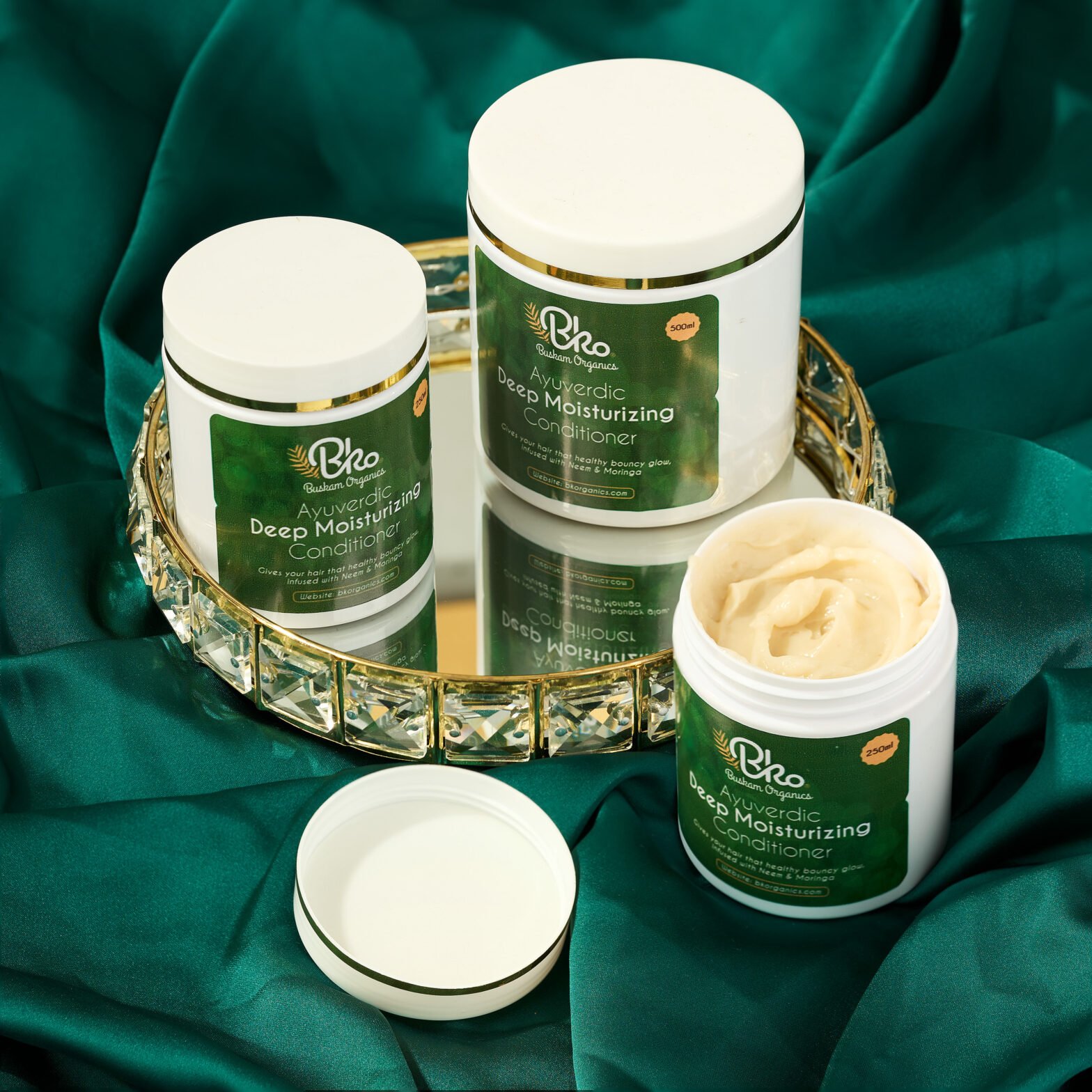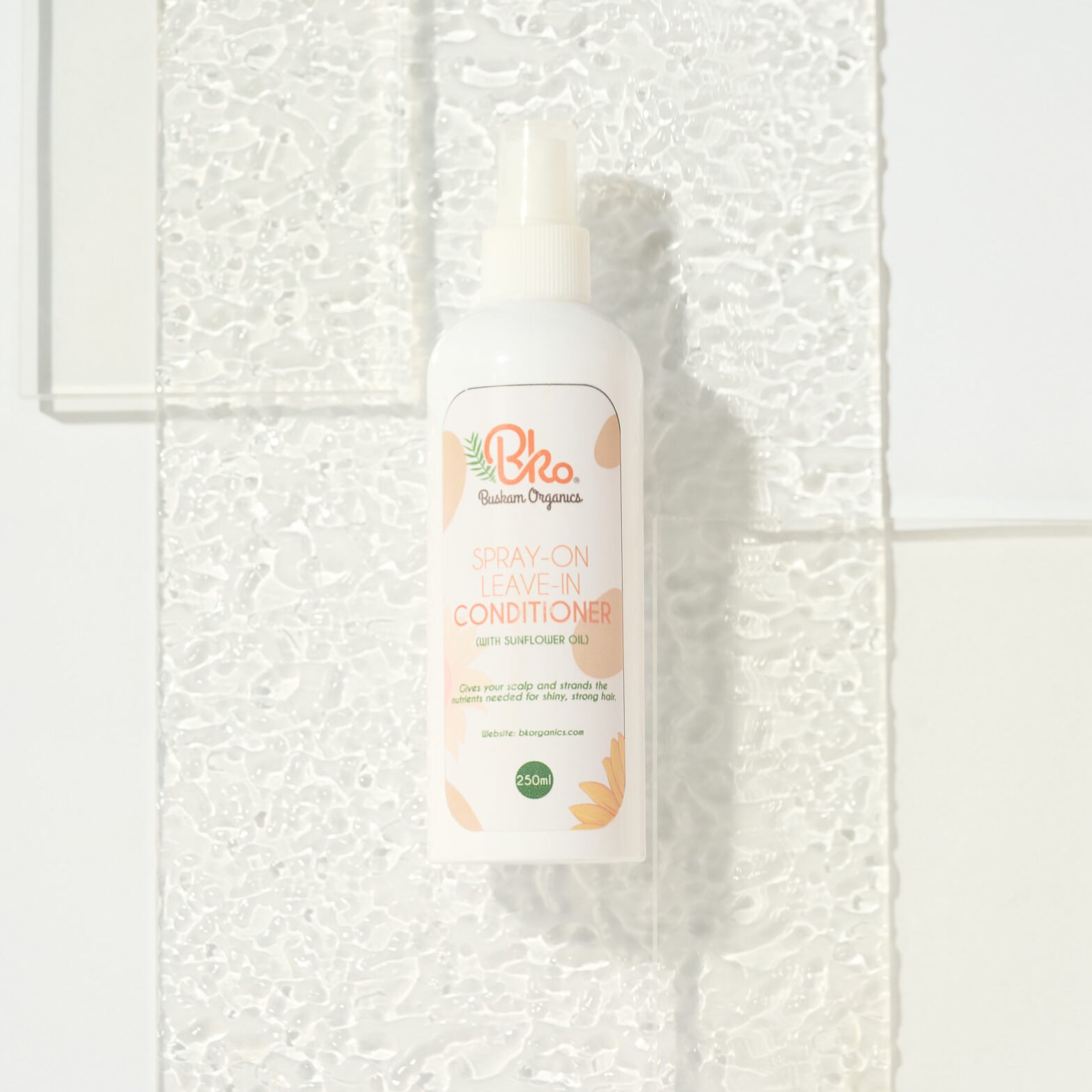Deep conditioning restores dull, dry hair and bring life back to your hair, it is meant to stay on the hair for longer than your regular hair conditioner(Rinse out Conditioner). A lot of deep conditioners target specific problems, such as a lack of protein from one too many chemical treatments or simply adding a hit of moisture back into your hair. Whatever you need, deep conditioning your hair usually have the answer. In general, deep conditioning is designed to soften, revive, and strengthen your hair, giving your hair a boost that’s much more intense than your normal hair conditioner Deep conditioning is fantastic for giving your hair an extra boost and upping the hair shine. If you have damaged hair, it’s an absolute must if you want to stop hair breakage and bring it back to some resemblance of health. For people with thin, oily hair, deep conditioning isn’t so essential, and you might want to look for a more lightweight treatment Understanding Black Hair’s Unique Needs: Black hair is naturally drier and more prone to breakage due to its tight curls and coils. BUSKAM DEEP CONDITIONER helps replenish moisture, restore elasticity, and strengthen the hair shaft, combating dryness and reducing the risk of breakage. Additionally, deep conditioning treatments can help soften and detangle the hair, making it more manageable and less prone to knots and tangles. Benefits of Using BUSKAM Deep Conditioner: 1. Moisture Restoration: Deep conditioning treatments penetrate the hair shaft, delivering moisture deep into the hair’s cortex. This helps hydrate and nourish the hair from within, leaving it soft, supple, and more resistant to breakage. 2. Strength and Elasticity: Protein-rich deep conditioners help strengthen the hair shaft, improving its resilience and elasticity. This reduces the risk of breakage and promotes length retention, allowing you to grow longer, healthier hair over time. 3. Damage Repair: Deep conditioning treatments can help repair damage caused by heat styling, chemical treatments, and environmental stressors. Ingredients like hydrolyzed keratin, collagen, and amino acids work to fill in gaps in the hair cuticle, smoothing roughness and restoring shine and vitality to the hair. Incorporating Deep Conditioning Into Your Routine: To reap the full benefits of deep conditioning, it’s essential to incorporate it into your regular hair care routine. Follow these steps for optimal results: 1. Choose the Right Product: Look for deep conditioning treatments formulated specifically for black hair, with nourishing ingredients like shea butter, coconut oil, and avocado oil. Consider your hair’s needs, such as moisture vs. protein, and select a product accordingly. 2. Application Technique: Apply the deep conditioner evenly to damp hair, focusing on the mid-lengths and ends where hair tends to be driest and most damaged. Use a wide-tooth comb or your fingers to distribute the product evenly and ensure thorough coverage. 3. Heat Activation: For maximum penetration and effectiveness, use heat to activate the deep conditioner. You can do this by covering your hair with a plastic cap and sitting under a hooded dryer or using a warm towel or shower cap to trap heat and enhance absorption. 4. Rinse Thoroughly: After the recommended treatment time, rinse the deep conditioner thoroughly with lukewarm water to remove any residue. Follow up with the BUSKAM leave-in conditioner or moisturizer to seal in moisture and add additional hydration. Deep conditioning is a vital component of a healthy hair care routine for black women and men. By nourishing and revitalizing the hair from within, deep conditioning treatments help maintain moisture balance, strengthen the hair shaft, and promote overall hair health. Incorporate deep conditioning into your regular routine to unlock the full potential of your hair and achieve long-lasting results. “Your hair is your crown, your hairitage, so be bold, be confident, be #BONFIDENT”
Author: BKO
Retain That New Growth!!!
Wanna know how to retain that new growth? Moisture & protect! You think it can’t be that simple? Well it is, we’re sure the most asked question for every black lady is ” how do I grow my hair?”; yes, we know and we’ve been there…. If some of you are like some of us; you think women with long, thick hair get them cause someone in their family has long & thick (full) hair, hello sister please wake up!!!! The process of maintaining & grooming long, thick hair has been lost to the modern African society; like we always say it’s never too early or late to be #BONFIDENT. Here are easy steps for you to follow to retain length: 1. Healthy Scalp: use shampoos that prioritize scalp health and use stimulating oils on your scalp like rosemary and tea tree oil. 2. Treatments: use a weekly deep conditioning treatment, probably on Sundays or days you can really pay attention to your hair. During this process, take the time to gently and slowly detangle you hair to reduce breakage. You can also throw in the BUSKAM PROTEIN TREATMENT about once a month to strengthen your strands. If you like you can use a hydrating mask or deep conditioner like the BUSKAM DEEP CONDITIONER. 3. Lock That Moisture: After washing and conditioning, use the LCO method (leave-in conditioner, cream, and oil) to maintain moisture, which is important for natural hair length retention. The best type of leave-in conditioner is a water-based leave-in conditioner to penetrate your hair, and then follow up with BUSKAM PEPPERMINT BUTTER for a bit of definition . Finally, finish with the BUSKAM GROWTH OIL when your hair is dry to seal in moisture. 4. Refresh Your Hair: also refresh my hair with a water-based spray daily to keep your hair happy with the BUSKAM ROSEMARY HAIR MIST. 5. Protect Your Hair: yes, we know about the protective hair styles, but do you know that too much tension/stress on your hair will limit its growth? well now you now, so reduce the level of manipulation you put your hair through. Image source: Free Pik “Your hair is your crown, your hairitage, so be bold, be confident, be #BONFIDENT”
How Men Grow Healthy Hair
We know that our appearance plays a significant role in personal and professional lives; hair care talks is focused mainly on women; men also have hair challenges they rarely talk about. From combating hair loss, bald spots to dealing with dryness and breakage, the journey to achieving luscious locks can be riddled with uncertainties. However, with the right techniques and practices tailored to their specific needs, men can effectively nurture their hair and foster optimal growth. We’re going to navigate the important routines that men can incorporate into their daily lives to cultivate and sustain healthy hair, promoting not only physical well-being but also a boost in self-assurance and style. 1. Proper Hair Care Routine: o Regular Washing: Wash your hair regularly using a mild shampoo and conditioner suitable for your hair type. Over-washing can strip away natural oils, leading to dryness, while under-washing can result in scalp issues. o Gentle Handling: Be gentle while washing and handling your hair to prevent breakage. Avoid rubbing your hair vigorously with a towel; instead, gently pat it dry. o Avoid Heat Styling: Limit the use of heat styling tools such as hairdryers, as excessive heat can damage the hair shaft and cause breakage. If you must use heat styling tools, use them on a low heat setting and always apply a heat protectant product beforehand. o Regular Trims: For men with long hair, get regular trims to prevent split ends and maintain the overall health of your hair. 2. Balanced Diet and Hydration: o Nutrient-Rich Diet: Maintain a balanced diet rich in vitamins, minerals, and protein, as these nutrients are essential for healthy hair growth. Incorporate foods like fruits, vegetables, lean proteins, whole grains, and healthy fats into your meals. o Hydration: Drink plenty of water throughout the day to keep your body and scalp hydrated. Dehydration can lead to dry and brittle hair, so aim to drink at least 8 glasses of water daily. o Supplements: Consider taking supplements like biotin, vitamin D, and omega-3 fatty acids, which are known to promote hair health. However, it’s essential to consult with a healthcare professional before starting any new supplement regimen. 3. Stress Management and Lifestyle Choices: o Stress Reduction: Manage stress through relaxation techniques such as meditation, yoga, deep breathing exercises, or engaging in hobbies and activities you enjoy. Chronic stress can disrupt the hair growth cycle and lead to hair loss. o Adequate Sleep: Ensure you get enough quality sleep each night, as inadequate sleep can negatively impact overall health, including hair health. Aim for 7-9 hours of sleep per night to support healthy hair growth. o Avoiding Harmful Habits: Minimize or avoid smoking, excessive alcohol consumption, and recreational drug use, as these habits can impair circulation, decrease nutrient absorption, and negatively affect hair health. By incorporating these techniques into your daily routine, you can help maintain and promote the growth of healthy hair. However, it’s essential to remember that individual factors such as genetics and underlying health conditions can also influence hair health, so consistency and patience are key. If you experience any concerning changes in your hair, such as excessive shedding or sudden hair loss, consult a healthcare professional or a dermatologist for personalized advice and treatment options. “Your hair is your crown, your hairitage, so be bold, be confident, be #BONFIDENT”
Relaxed Hair? Want It Healthy & Long?
Maintaining a relaxed hair needs a delicate balance of moisture, strength, and protection to ensure its health and vibrancy. With our black hair’s unique texture and curl pattern, it becomes even more vulnerable when we add chemical treatments such as relaxers, texturizers, or color(dye). These processes change the hair’s natural structure, often leading to dryness, breakage, and damage if not properly cared for. However, with the right practices, you can keep your chemically treated hair healthy and beautiful. Here’s how, in an easy-to-understand format with practical examples: 1. Moisturizing is Key Why It’s Important: Chemical treatments can strip hair of its natural oils, leading to dryness. Dry hair is more prone to breakage. What to Do: Implement a rigorous moisturizing routine. Use leave-in conditioners and deep conditioning treatments regularly. For example, after shampooing, apply a deep conditioner and cover your hair with a plastic cap. Sit under a hooded dryer or use a warm towel around your head for 30 minutes to allow the conditioner to penetrate deeply. 2. Protein Treatments Why It’s Important: Chemical processes break down the protein structure of your hair, making it weak. Protein treatments help rebuild its strength. What to Do: Incorporate a protein treatment into your hair care routine every 4-6 weeks. Use products specifically designed for chemically treated hair. A practical approach is to apply a protein treatment that contains keratin or collagen, leave it on your hair as directed (usually between 10-30 minutes), then rinse it out. This will help reinforce the hair’s structure and reduce breakage. 3. Low-Manipulation Styling: Why It’s Important: Chemically processed hair is more susceptible to damage from heat and manipulation. Excessive styling can lead to breakage and split ends. What to Do: Opt for low-manipulation hairstyles that don’t require frequent combing, brushing, or heat styling. Examples include twists, braids, or updos that can last several days to a week. When detangling, use a wide-tooth comb and start from the ends, working your way up to the roots gently. 4. Limit Heat Usage: Why It’s Important: Heat styling can cause further damage to already processed hair, making it brittle and dry. What to Do: Reduce the use of heat styling tools like flat irons, curling irons, and blow dryers. If you must use them, always apply a heat protectant beforehand. Alternatively, embrace heatless styling methods, such as roller sets or braid-outs, to achieve desired styles without the damage. 5. Protective Night-time Practices: Why It’s Important: Cotton pillowcases can absorb your hair’s oils and cause friction, leading to breakage. What to Do: Sleep with a satin or silk scarf wrapped around your head, or use a satin pillowcase. This will help retain moisture and reduce breakage caused by friction. Additionally, try to braid or twist your hair loosely before bed to prevent tangles and breakage. 6. Regular Trims: Why It’s Important: Split ends can travel up the hair shaft and cause more damage, making your hair look frizzy and unkempt. What to Do: Get your hair trimmed regularly, about every 6-8 weeks, to keep it looking healthy and to prevent split ends from causing further damage. 7. Hydrate and Nourish From Within: Why It’s Important: Healthy hair starts from the inside. A well-balanced diet and adequate hydration are essential for maintaining the health of your hair. What to Do: Drink plenty of water and eat a balanced diet rich in vitamins, minerals, and omega-3 fatty acids. Foods like salmon, avocados, nuts, and leafy greens can promote healthier hair. By adopting these best practices, you’ll not only protect your chemically processed African hair from potential damage but also encourage its growth and vitality. Remember, consistency is key, and your hair’s needs may change over time, so be attentive and willing to adjust your routine as necessary. “Your hair is your crown, your hairitage, so be bold, be confident, be #BONFIDENT”




